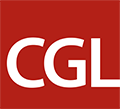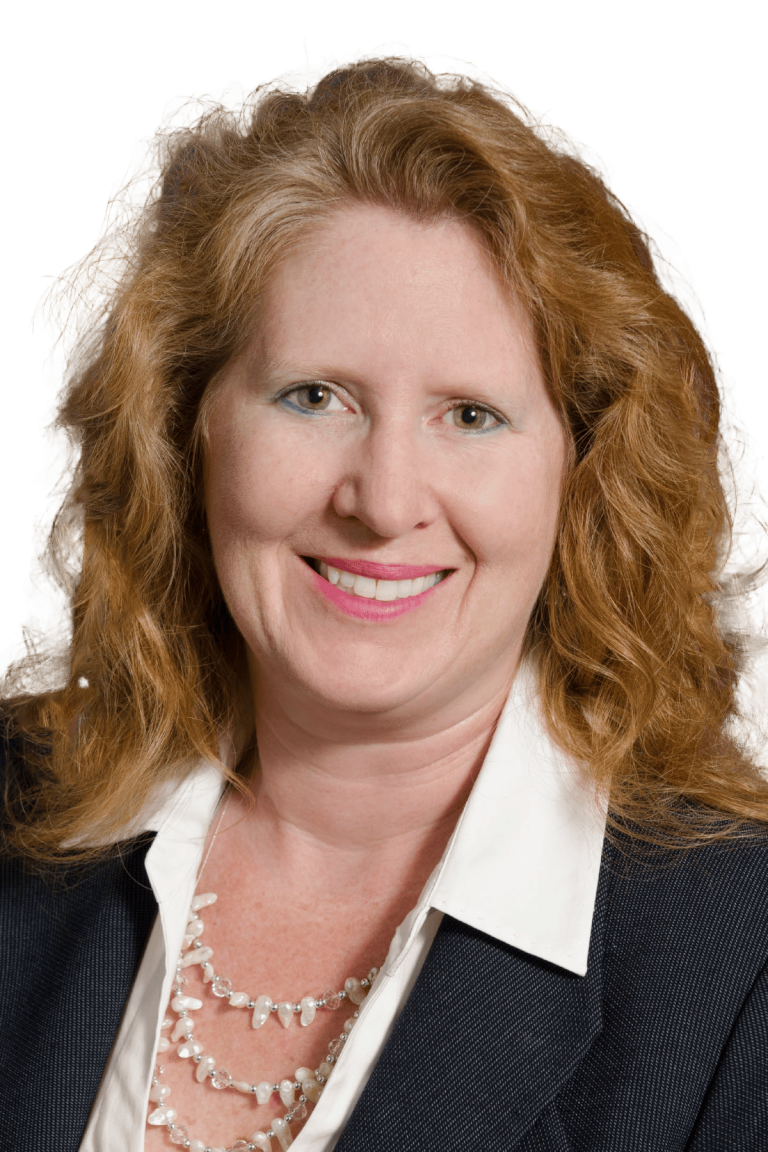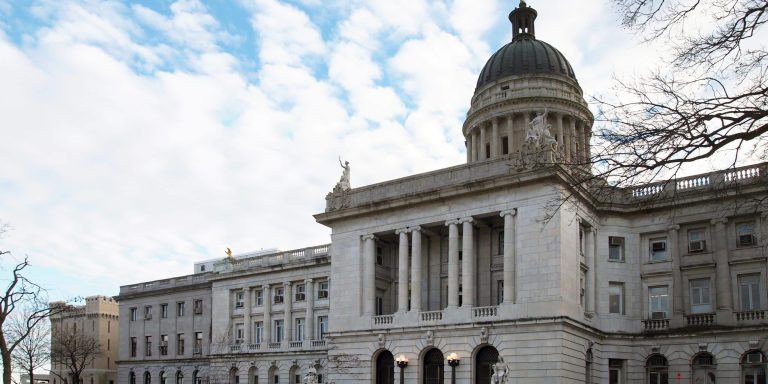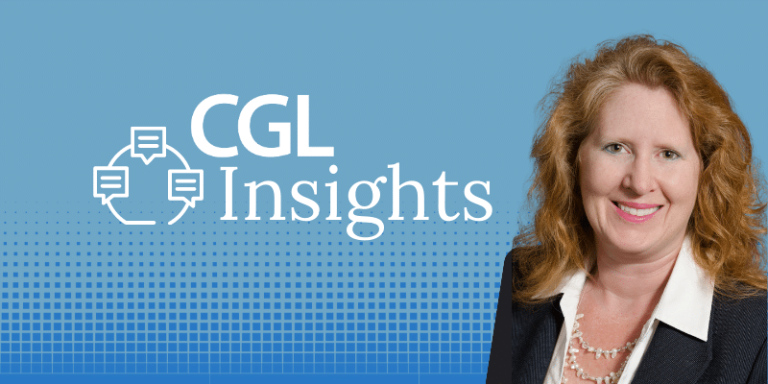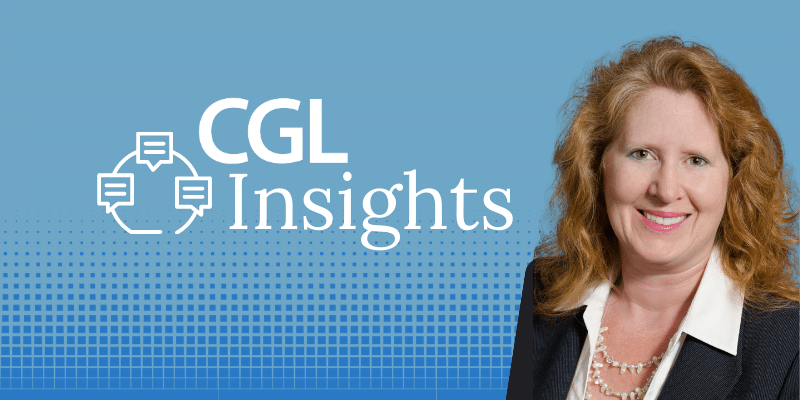
The Power of Visioning Sessions in Criminal Justice Planning: Insights from an Expert
Criminal justice planning is a complex and multifaceted field that requires careful analysis and strategic thinking. One of the most important tools in a planner’s toolkit is the visioning session, a collaborative process in which stakeholders come together to brainstorm and develop a shared vision for a project or initiative. To learn more about the power of visioning sessions in criminal justice planning, we sat down with Chloe Jaco, an expert in the field with decades of experience working on a variety of projects. In this post, Chloe shares her insights on what visioning sessions are, how they work, and why they’re so crucial to the success of any criminal justice project.
Let’s start with the basics… What is a visioning session?
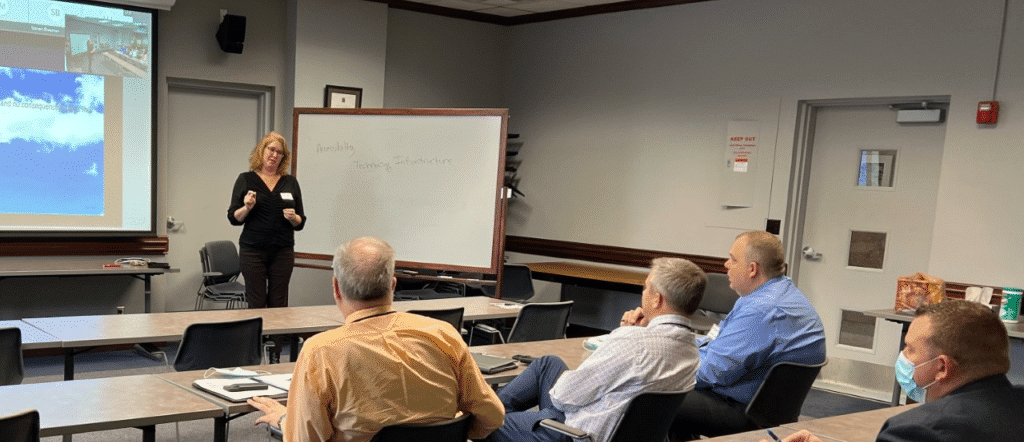
Chloe Jaco, Director of Planning at CGL, leading a vision planning session with Illinois Department of Corrections. Over the course of her career, Jaco has lead dozens of visioning sessions.
A visioning session is a wonderful opportunity at the beginning of a project to bring together all the stakeholders that are part of the process, or even touch the process, to really help a client formalize in their mind what their inspirational and aspirational goals are for the project. It’s important to always try to start any project with some type of meeting with the key users to make sure that the whole team understands the purpose of the mission and the goals of what we’re trying to accomplish.
Why might a client need a visioning session?
A visioning session is vital for establishing a solid foundation for a project. It lays the groundwork and forms the “vision” that will help keep all moving parts focused on the important mission at hand. A lot of times, when working with our clients, we like to start off by creating a big, overarching mission statement for what we’re trying to accomplish. Then, we’ll come up with some guiding principles or touchstones that we’ll use throughout the entire project, and even afterwards, to be used by the client to ensure that everything that’s happening is fulfilling the vision and the goals that were set forth at the beginning.
What are some types of projects that warrant visioning sessions? 
There’s really no project too small or too large. We have found that – especially with projects that have a lot of community attention or may be going out for a public vote or consideration – it really does help to have this as part of the process because it establishes early on the purpose for the project. It’s going to provide that thread of communication throughout the entire process. So, definitely project size is imperative – larger projects need to have this done, but really any project can benefit enormously from starting off with a visioning session at the beginning.
Why are visioning sessions important for criminal justice planning specifically?
Visioning sessions are extremely important for criminal justice planning because there have been a lot of changes in our industry. There’s increased social and community awareness of these projects, and there are a lot of strong opinions about what these projects should be – what the nature of the facility should look like, who should be included, who should be inside the facility, etc.
There are a lot of opinions out there on this, and every community has got some different flavors, so it’s really, really important to do this early on in the process. Then you can provide that messaging and that information out to not only the community, but also all the participants that are involved in the project.
Who is typically involved in a visioning session?  Participants in a visioning session can really range. A lot of times it will be the direct users of the project and, many times, the elected officials, as well. It could also involve participating agencies that have some interaction throughout the process.
Participants in a visioning session can really range. A lot of times it will be the direct users of the project and, many times, the elected officials, as well. It could also involve participating agencies that have some interaction throughout the process.
We’ve even conducted a few sessions lately that have included participants from the public. So, it can be as wide or comprehensive as the project owners feel is appropriate for what they’re trying to accomplish. Overall, these sessions really do help with getting some of that buy-in and input early on and really helping with the public relations campaign from the beginning through the end of the project.
How can visioning sessions help stakeholders develop a shared understanding of goals and priorities in the criminal justice system? 
The visioning sessions help the participants create these shared visions and goals because we actually spend a few hours with them doing just that. A visioning session can be anywhere from two to four hours or longer, depending on what you want to accomplish.
During that time, similar to how we approach effective staff training sessions, we do a series of exercises with the group to help them identify what their priorities are and what they’re trying to accomplish as a group. That’s actually kind of the fun part of it – helping build that connection and synergy between all the different groups in the session. Then, at the end, we’re able to show the group these collective guiding principles that all of them have their fingerprints on.
What are some areas for improvement that might be identified through a visioning session? 
Visioning sessions help identify areas of improvement because it requires that the stakeholders actually all come together as a group and spend multiple hours doing different kinds of team building exercises. From that time spent together, we’ll often identify areas that everybody agrees needs to be improved on, whether it’s information sharing; how you take the client through the process; when handing off from one agency to another, what type of spaces need to be provided to provide that environment? And so on…
In the visioning sessions we’ve conducted lately, we’ll identify a lot of interesting areas for improvement because we’ll often have a lot of different agencies participate as part of the stakeholders. When you’re working on a criminal justice system plan – or any justice facility really, because any facility in criminal justice is going to impact the entire system – often you may bring in stakeholders from the jails, courts, and probation and parole or the community mental health agencies. A lot of times, we’ll find in these visioning sessions those aspirational goals of how to better improve services.
I would say that’s always one of the most rewarding parts of the visioning session – bringing everybody together and helping them identify those opportunities and making sure that those are included in the project.
How can agencies ensure that planning efforts are aligned with the needs of the community through visioning sessions?
One way that we can ensure the visioning session is aligned with a community’s views or needs is to sometimes include them in the process. As I mentioned, we’ve actually done some sessions lately where members of the public were invited to participate. You can have them as part of the initial visioning session. Another option is to include them as part of the communication strategy after the visioning. Often, we will create a project page or project website, which will include a summary of what happened in the visioning session and what the goals were that have resulted from it, giving the public the opportunity to comment or to add feedback.
Another way to ensure you’re aligned with their needs is to set up a community meeting or let members of the public sign up if they’d like to have a one-on-one meeting. The input and feedback from those meetings will be used as part of the information, kind of the public relations component, to share out there with the community what’s happening, what we’re thinking, and also to get feedback and continuously add to the information we’ve already put together.
NEXT UP:
Stay tuned for our next installment where we’ll dive deeper into what to expect from a visioning session, the challenges you’ll face, and what constitutes a great visioning session.
